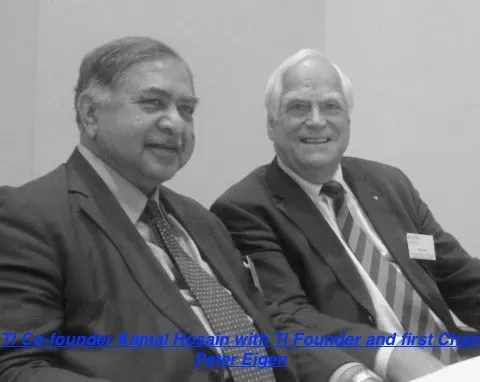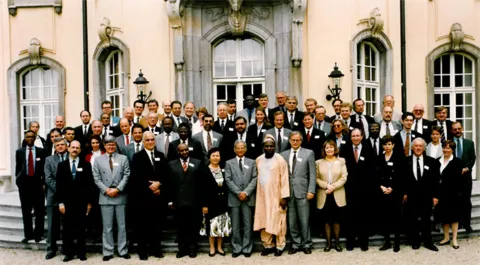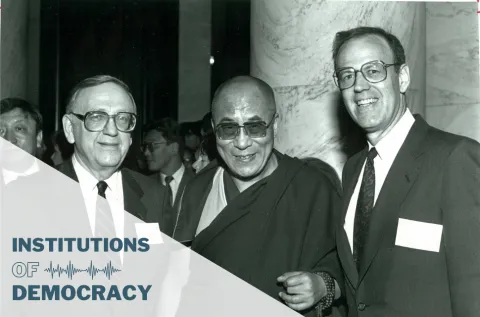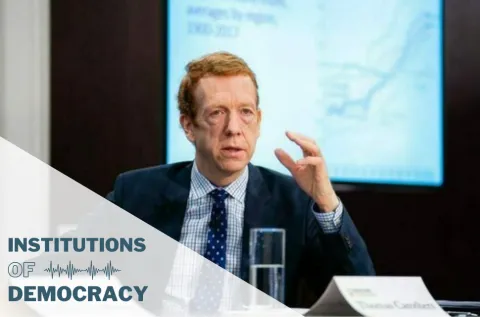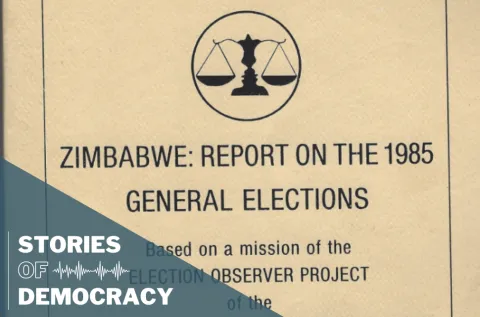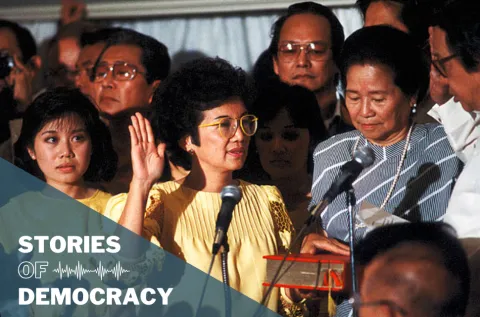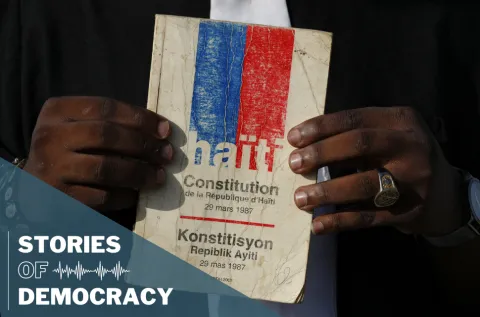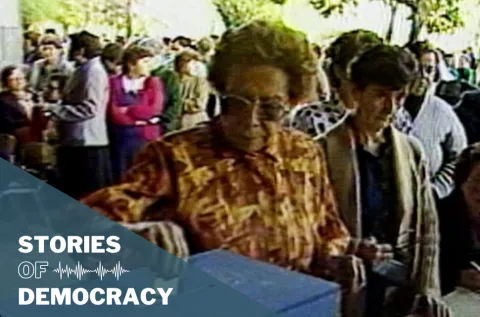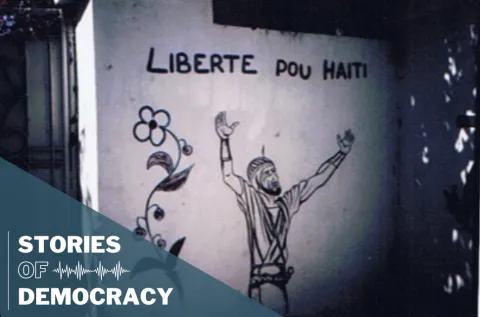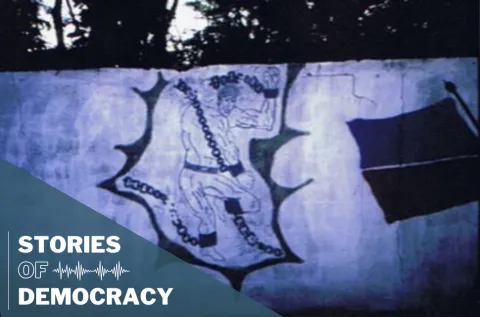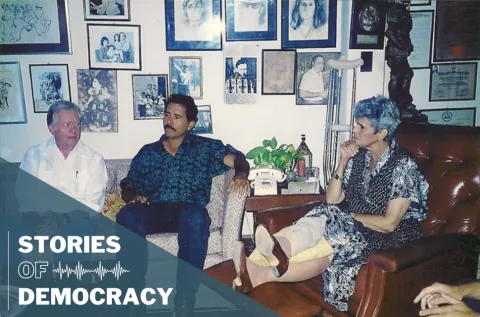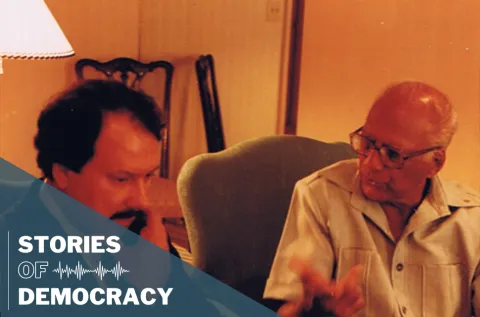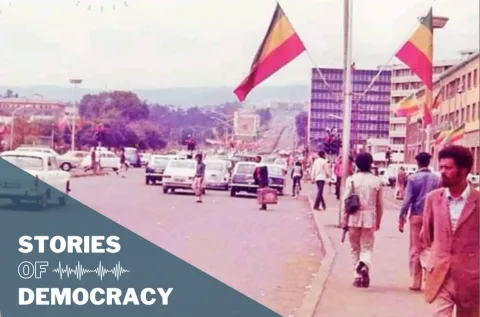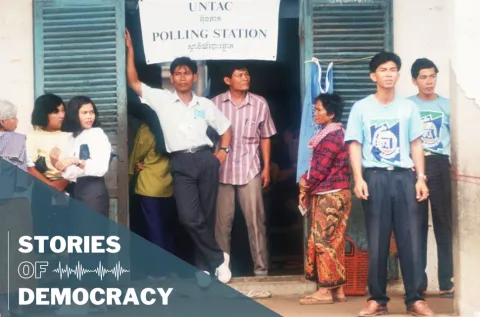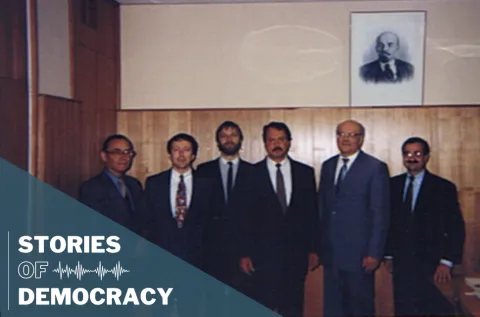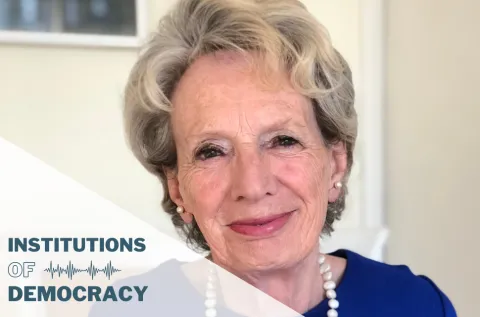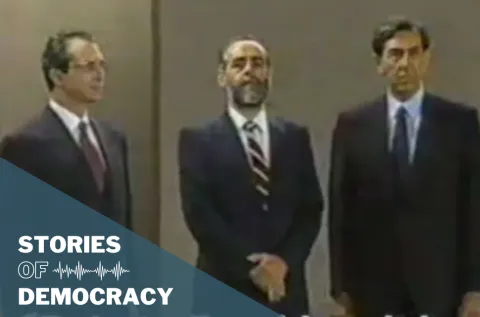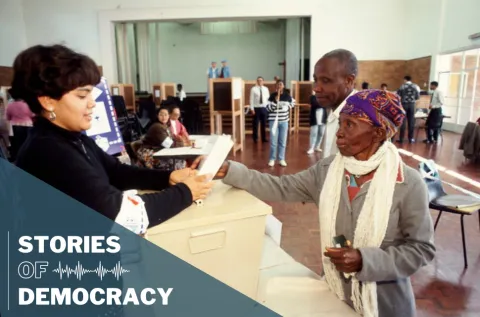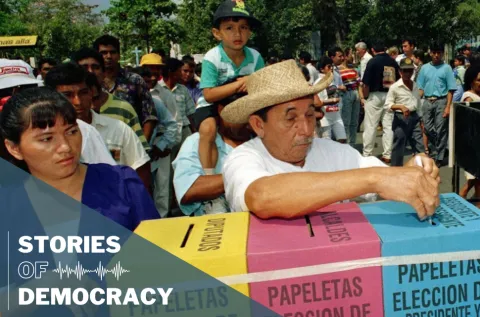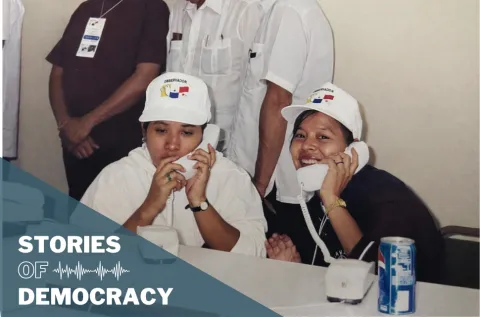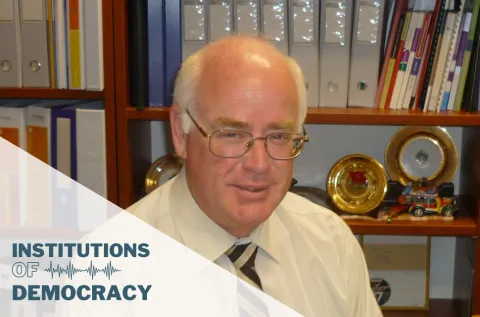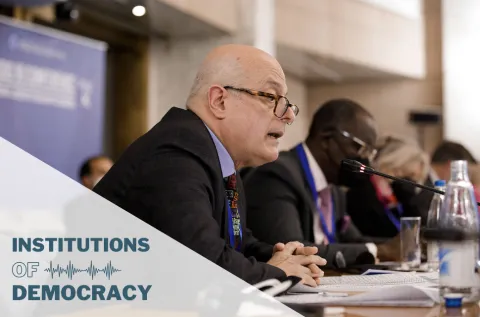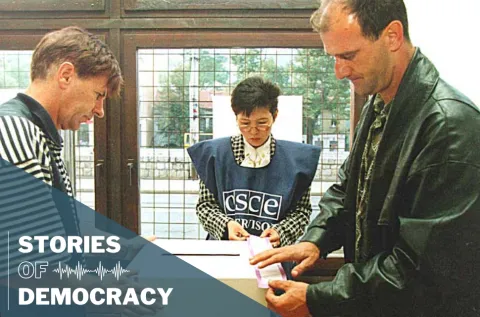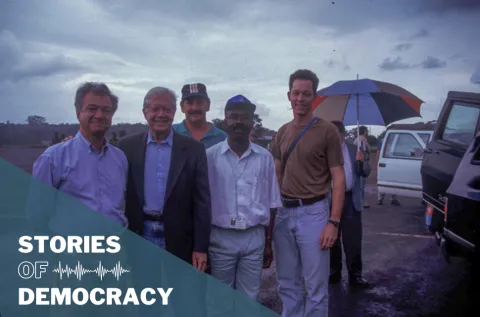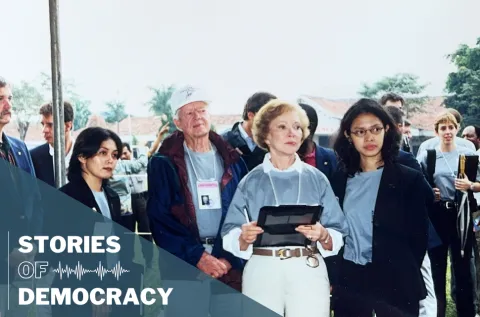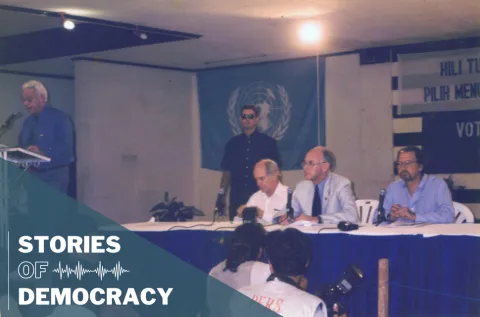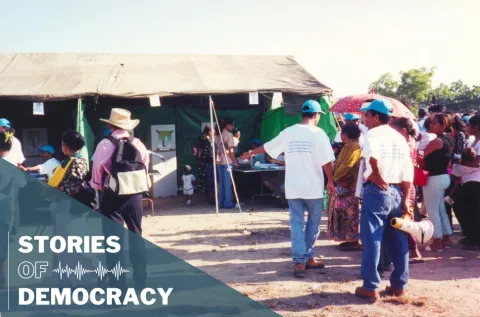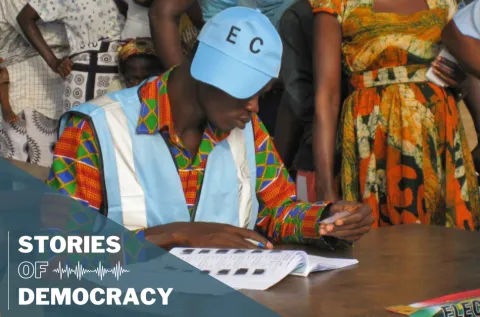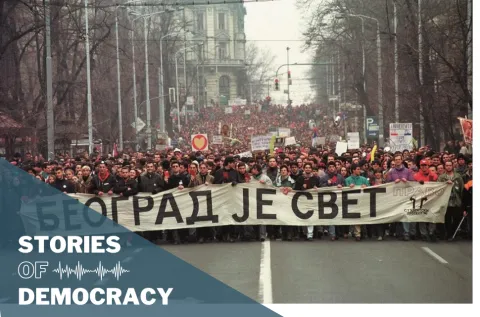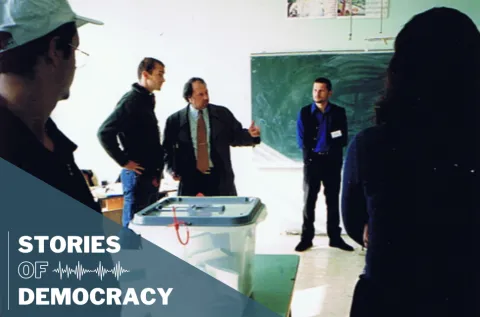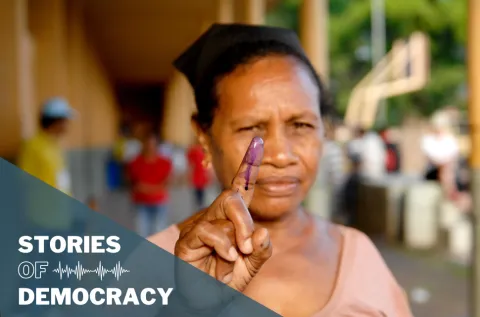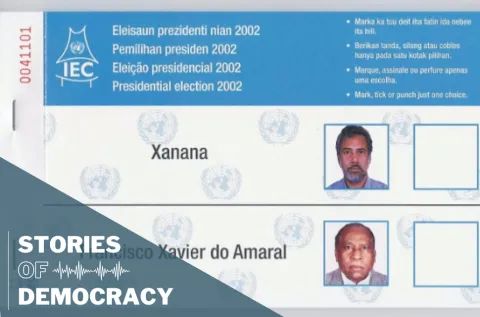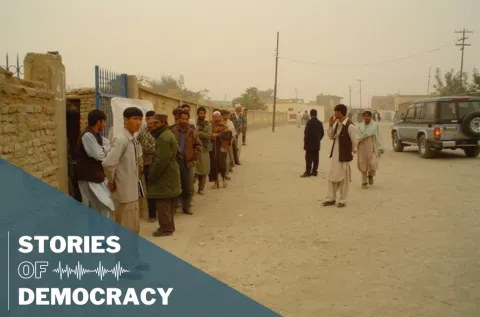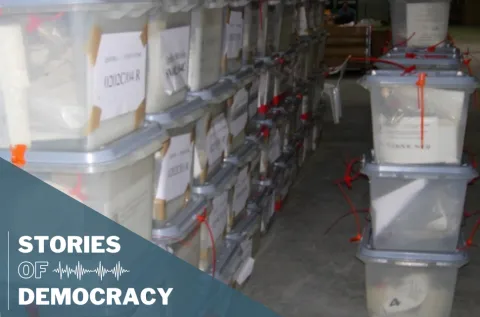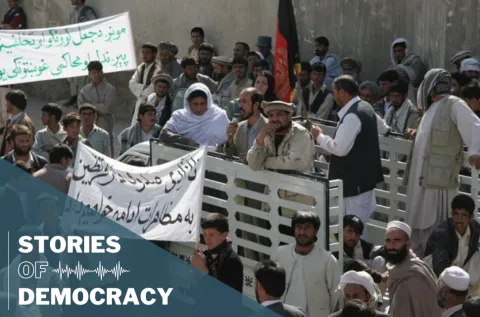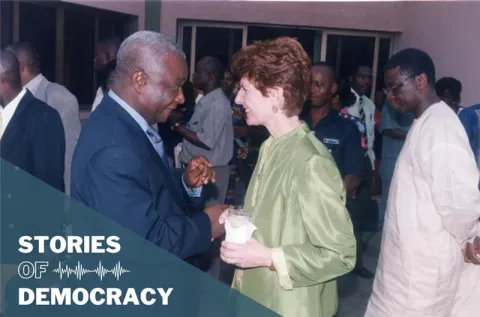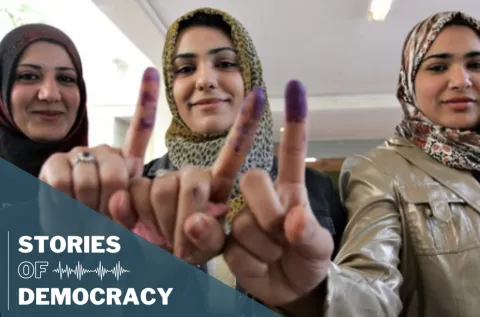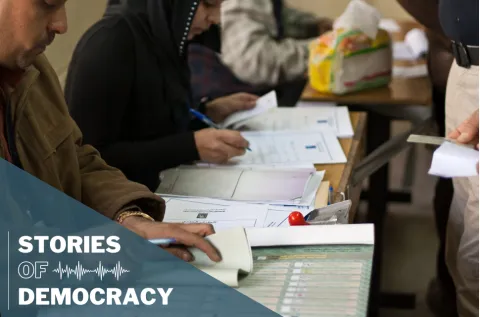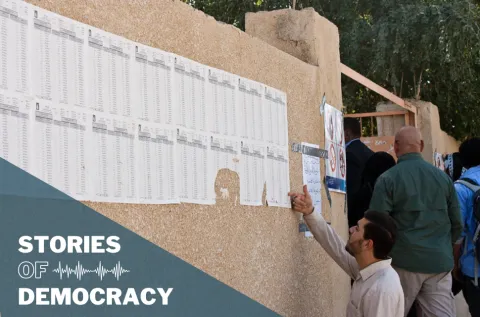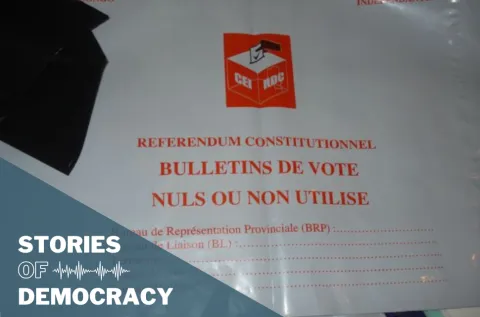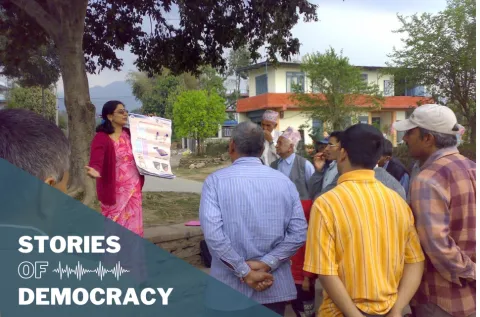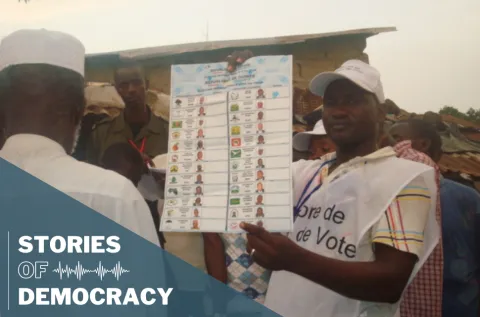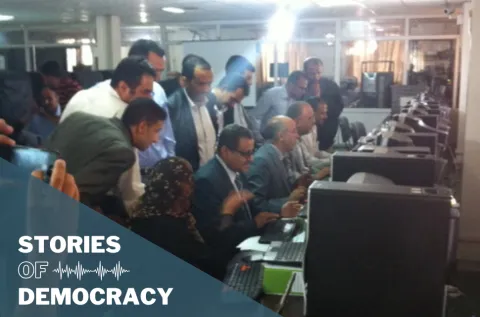Institutions of Democracy - 1993 - Transparency International
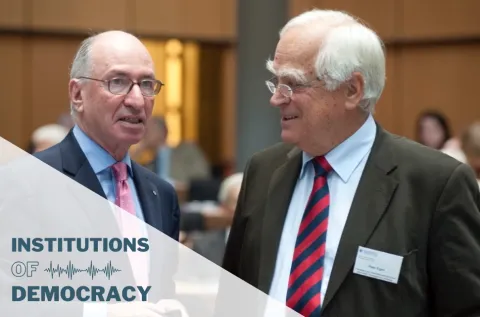
Founded in 1993 by Peter Eigen, together with a small group of friends including Frank Vogl, Transparency International is a global movement seeking to fight corruption and promote transparency, accountability and integrity at all levels and across all sectors of society. Today, Transparency International operates in more than 100 countries, advocating for accountability and integrity across governments, businesses, and civil society. Its efforts have influenced international anti-corruption laws, including the OECD Anti-Bribery Convention and the United Nations Convention against Corruption, and continue to support global initiatives to reduce corruption as a fundamental barrier to development, governance, and justice.
In this recording, Frank Vogl recalls the circumstances that led to the founding of Transparency International, and the impact that the organization’s structure and early decisions had on ITS later successes and on the conversations around anti-corruption work more broadly–in particular, the decision to base TI in Germany, the origin of TI chapters rather than a more wide reaching, centralized organization structure, and the advent of TI’s Corruption Perceptions Index. Additionally, Vogl highlights some of TI’s key work areas over the years, including public procurement, corporate bribery conventions, corruption in defense and security, illicit finance, and sexual corruption, and discusses how TI’s focus has changed over the years as the global landscape has evolved.
Frank Vogl is a co-founder of Transparency International, and served as Vice Chairman from the establishment of the organization through 2002 and as an Advisory Council Member from 2003-2005. Frank was elected to the Board of Directors again in 2005 for a three-year term. In 2008, he was appointed once again to the Advisory Council. He is presently an “Individual Member” of TI. He is a co-founder and former Chairman and Board Director of the Partnership for Transparency Fund and currently serves on the President’s Council. Frank is a member of both the International Council of the New Israel Fund, and the Advisory Council of the United Nations Association of the greater Washington (DC) metropolitan area (UNA-NCA). He is a co-founder, Treasurer and Secretary of the Viktor Kalabis and Zuzana Ruzickova (music) Foundation. Frank was formerly the World Bank’s Information and Public Affairs Director and has worked as an international journalist. He is an author and lecturer and an Adjunct Professor at Georgetown University.
